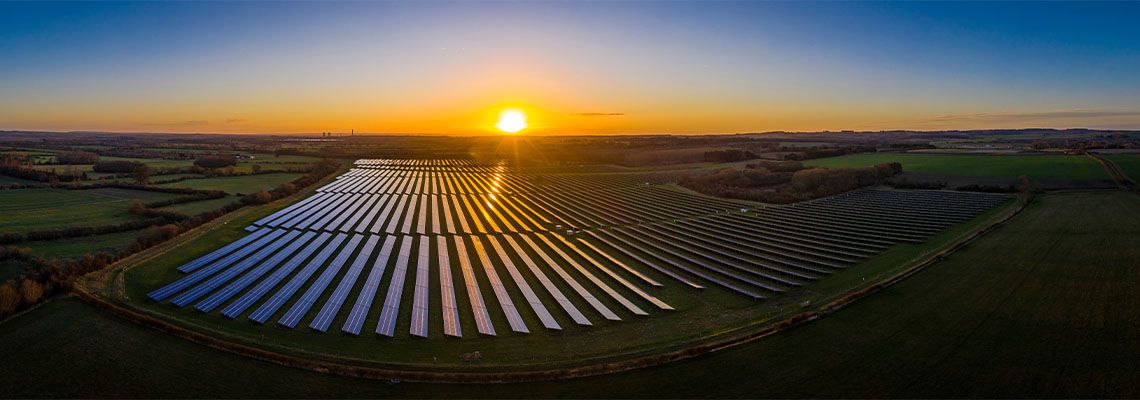
Are Solar Farms Profitable?
The profitability of solar farms is a hot topic right now. With the rising interest in renewable energy, many people are curious about whether investing in solar farms is worth it.
Let's examine the financial side of solar farms and examine how solar energy affects environmental, social, and governance (ESG) legal factors.
Understanding Solar Farms
A solar farm is a large-scale installation of solar panels used to generate electricity. These farms can range from a few acres to hundreds of acres. They produce energy that is sold to utility companies or directly to consumers.
In addition to their size and energy production capabilities, solar farms also come in different types, including utility-scale solar farms and community solar farms.
Utility-scale solar farms are typically larger and feed energy directly into the grid, contributing significantly to the overall supply of electricity.
Community solar farms, on the other hand, are smaller and allow multiple stakeholders, such as homeowners and businesses, to share the benefits of solar energy without installing solar panels on their own properties.
Community solar projects make renewable energy more accessible and can help reduce the dependency on fossil fuels while supporting local economies through job creation and lower energy costs.
Profitability Factors
Several factors influence the profitability of solar farms:
Initial Investment
Solar farms can be quite expensive to establish, covering costs for land, solar panels, inverters, and other equipment. However, the decreasing prices of solar technology have made it more accessible.
Government Incentives
Federal and state incentives can significantly reduce the cost of solar farms. These incentives come in the form of tax credits, grants, and rebates. For instance, the federal Solar Investment Tax Credit (ITC) offers a 26% tax credit for solar systems installed by the end of 2022.
Operational Costs
Once the solar farm is up and running, the operational costs are relatively low. Solar panels require little maintenance, and there are no fuel costs. This makes solar farms cheaper to operate compared to traditional power plants.
Revenue Streams
Solar farms generate revenue by selling electricity. The price of electricity can vary based on location and demand. Some solar farms also earn money through renewable energy credits (RECs), which are sold to companies looking to offset their carbon emissions.
Long-Term Savings
Over time, the savings on electricity costs can add up. Solar farms can provide a stable source of income for 20-30 years, making them a long-term investment.
Laws Governing Solar Farms in Kentucky
Those interested in setting up a solar farm in Kentucky must understand local laws and regulations. Kentucky has several policies in place to encourage the adoption of solar energy.
Net Metering
Kentucky's net metering policy allows solar farm owners to sell excess electricity back to the grid. This can provide an additional revenue stream and improve the solar farm's overall profitability.
Property Tax Exemptions
Kentucky offers property tax exemptions for solar energy systems. This means that the increased value of your property due to the solar installation will not result in higher property taxes.
Renewable Portfolio Standards (RPS)
Although Kentucky does not have mandatory RPS, utilities in the state are encouraged to use renewable energy sources. This creates a market for solar energy and can make solar farms more profitable.
Zoning and Permitting
Before setting up a solar farm, you must comply with local zoning and permitting requirements. These regulations can vary by county, so it is essential to consult with local authorities.
Environmental Regulations
In Kentucky, any large-scale development, including solar farms, must comply with environmental regulations to protect local ecosystems and water sources. This includes obtaining permits related to land use and water discharge and potentially conducting environmental impact assessments.
Interconnection Standards
Kentucky has specific interconnection standards that dictate how solar systems can be connected to the grid. These standards ensure that solar farms can safely and efficiently integrate with existing utility infrastructure.
Prospective solar farm developers must navigate these technical and procedural requirements to ensure a successful connection to the grid.
Land Use and Agricultural Assessments
Kentucky law often includes provisions for land use that may affect where solar farms can be sited. Recognizing the value of preserving agricultural land, some counties may offer reduced property taxes for agricultural land used for solar energy production, provided that the land can later be returned to its previous use.
Solar Access Laws
Kentucky has established solar access laws to prevent shading and ensure sunlight availability. These laws protect the rights of solar farm operators to maintain access to sunlight by preventing neighboring properties from constructing buildings or planting trees that would block solar panels.
Meet With an Environmental, Social, and Governance (ESG) Attorney in Louisville, Kentucky
Fighting for social justice, especially racial justice, is a significant part of my work. I am a consultant, organizer, speaker, strategist, and legal representative. My practice focuses on class-action cases and assisting large groups, such as unions.
If you are considering setting up a solar farm in Kentucky and need legal advice, feel free to reach out to Chris Sanders Law PLLC. Let's work together to make your renewable energy project a success.
